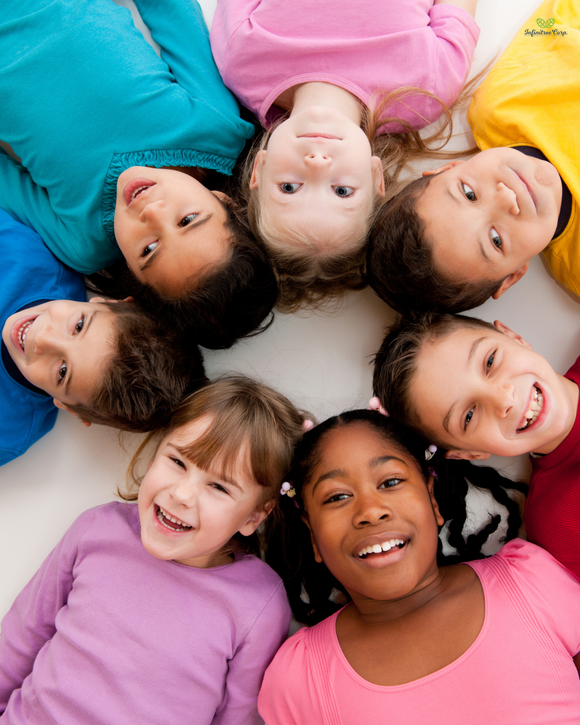
How Playdates Improve Social Skills and Emotional Well-being
InfinitreeEditor.Jo
How Playdates Improve Social Skills and Emotional Well-being
A Simple Playdate, A Big Impact
Last summer, I arranged a playdate for my son, who had been struggling to make friends at school. At first, he was shy and hesitant, sticking close to me. But after a few minutes of playing tag, he was laughing and running around with the other kids. By the end of the day, he didn’t want to leave.
What I saw wasn’t just kids having fun—it was a moment of social and emotional growth. Through that playdate, my son learned how to communicate, cooperate, and build friendships.
Lack of Social Interaction
Today, many kids face challenges in developing social skills and emotional well-being due to:
- Limited Face-to-Face Interaction: Increased screen time and structured schedules reduce opportunities for organic play.
- Social Anxiety: Some children struggle to initiate conversations or form connections.
- Emotional Isolation: Without social engagement, kids may feel lonely or misunderstood.
Playdates offer a simple but powerful solution to these issues, providing a supportive environment where children can learn, grow, and thrive socially.
How Playdates Support Social and Emotional Development
-
Improved Communication Skills
- Playing with others helps kids learn how to express themselves clearly, take turns speaking, and listen actively.
-
Development of Empathy
- Interacting with peers allows children to understand and respond to others' emotions.
-
Teamwork and Cooperation
- Activities like building forts or playing team sports require collaboration, teaching kids how to work towards shared goals.
-
Conflict Resolution
- Disagreements during play provide opportunities for kids to practice negotiation and problem-solving.
-
Increased Emotional Resilience
- Playdates expose kids to new situations and personalities, helping them adapt and build confidence.
The Solution: Planning Playdates to Maximize Growth
Creating successful playdates involves more than just setting up a time and place. By planning with intention, you can ensure the experience fosters both fun and development.
1. Choose the Right Playmates
Why It Helps:
Kids benefit most from playdates with peers who share similar interests or temperaments.
How to Do It:
- Reach out to other parents to arrange playdates with classmates, neighbors, or family friends.
- Observe how your child interacts with potential playmates to identify positive dynamics.
Pro Tip:
If your child is shy, start with smaller, one-on-one playdates to build comfort and trust.
2. Plan Structured and Unstructured Activities
Why It Helps:
A balance of planned and free play activities keeps kids engaged while encouraging creativity.
How to Do It:
- Start with a structured activity (e.g., an art project or scavenger hunt) to break the ice.
- Allow time for free play, where kids can create their own games and stories.
Example Activities:
- Structured: A cooperative board game or baking simple treats together.
- Unstructured: Open access to toys, building blocks, or an outdoor play area.
Pro Tip:
Let the kids decide how to extend or modify activities, fostering leadership and creativity.
3. Encourage Cooperative Play
Why It Helps:
Cooperative play helps kids learn teamwork and the importance of shared responsibilities.
How to Do It:
- Introduce games that require working together, such as building a puzzle or playing capture the flag.
- Emphasize positive reinforcement by praising teamwork efforts.
Example:
“Wow, you both worked so well together to build that tower!”
Pro Tip:
Rotate leadership roles during group activities to ensure each child feels empowered.
4. Model and Support Positive Behavior
Why It Helps:
Kids learn social cues by observing adults and receiving gentle guidance during interactions.
How to Do It:
- Demonstrate kindness, patience, and active listening when communicating with the children.
- Intervene only when necessary, allowing kids to navigate minor disagreements independently.
Example:
If a child grabs a toy, gently prompt them: “How can we share this so everyone gets a turn?”
Pro Tip:
Teach simple conflict-resolution strategies, like using “I” statements (e.g., “I feel upset when you take my toy without asking”).
5. Reflect on the Playdate Experience
Why It Helps:
Reflecting helps kids internalize what they’ve learned and reinforces positive behaviors.
How to Do It:
- After the playdate, ask your child open-ended questions about their experience.
- “What was your favorite part?”
- “How did you feel when you played that game with your friend?”
- Highlight any moments where they demonstrated kindness, problem-solving, or teamwork.
Pro Tip:
Encourage your child to write or draw a thank-you note for their playmate, reinforcing gratitude and social bonding.
Putting It All Together: A Weekly Playdate Plan
Monday: Reach out to other parents and schedule a playdate.
Wednesday: Discuss and plan activities with your child.
Friday: Host or attend the playdate, balancing structured and unstructured play.
Saturday: Reflect on the experience with your child and celebrate their social achievements.
By making playdates a regular part of your child’s routine, you’ll help them develop critical social and emotional skills in a natural, engaging way.
Tips for Playdate Success
-
Keep Playdates Short for Younger Kids:
- One to two hours is often enough to prevent overstimulation.
-
Create a Safe Environment:
- Ensure the play area is child-friendly, with minimal hazards.
-
Set Clear Expectations:
- Discuss rules and boundaries (e.g., no rough play, clean up after activities) with both kids beforehand.
-
Stay Flexible:
- Be prepared to adjust activities based on the children’s moods and interests.
Conclusion: Building Lifelong Social Skills
Playdates aren’t just a chance for kids to have fun—they’re opportunities to develop critical social skills, emotional resilience, and confidence. Through communication, teamwork, and play, children learn how to navigate relationships and adapt to new situations.
Combine these experiences with a balanced diet and a supplement like Opti-up Alpha Plus to support your child’s physical and mental growth. Let’s give our kids the tools they need to thrive—one playdate at a time!
Disclaimer: This article is for informational purposes only and does not constitute medical advice. Please consult your healthcare provider before making significant dietary changes or introducing new supplements to your child’s routine.






